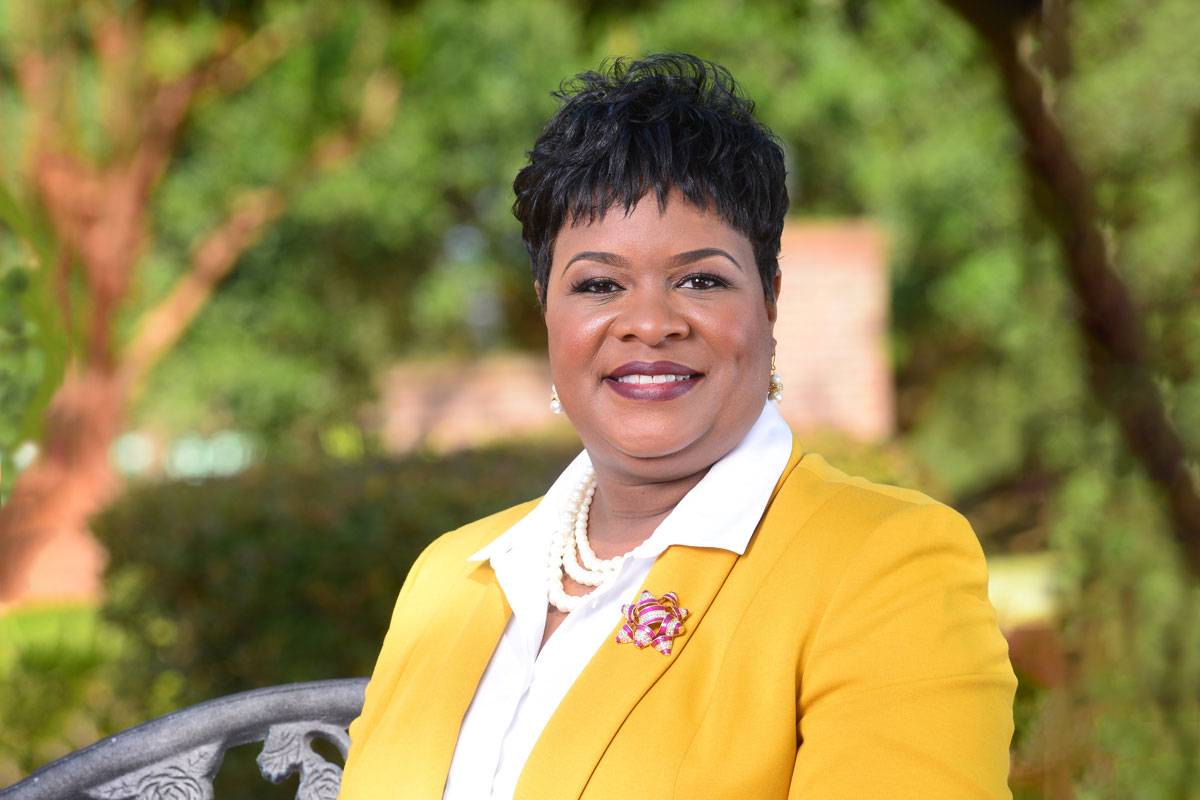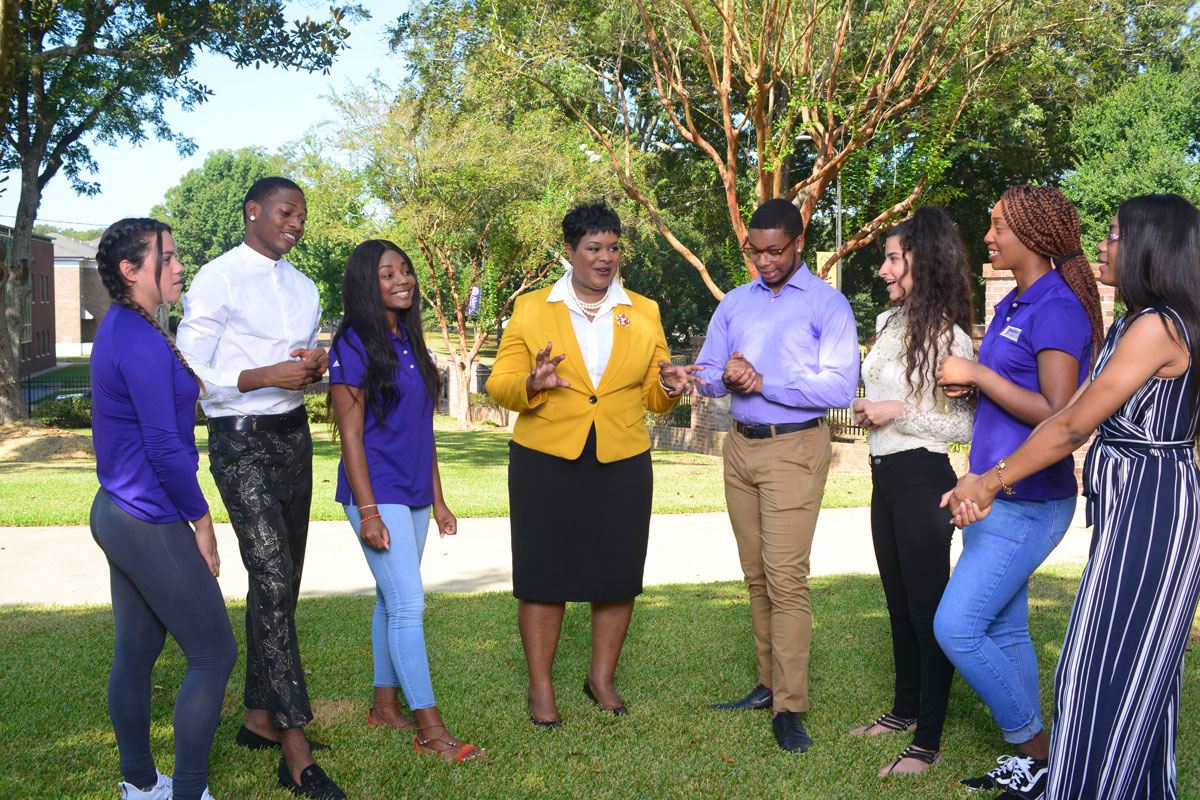
When you get to know Felecia M. Nave, it is easy to understand why she would have been both honored and humbled to be made the 20th President, and first female President, of Alcorn State University. As well as being one of America’s oldest historically Black land-grant universities, it is the place where she spent her formative years – and helped mold her success since leaving its halls.
“I fondly remember gracing this beautiful campus as a student years ago and am forever grateful for the solid foundation it has provided me,” she says. “My life experience and career in higher education has provided me with the tools and skills needed to serve and lead this campus successfully.”
Taking such a prestigious role less than a year before the global pandemic unfolded certainly made for an intense start to the job on the Mississippi campus in Lorman. “What began as a typical academic year abruptly changed in March 2020,” she recalls. “But we never stopped moving forward, thanks to the extraordinary efforts and steadfast resilience of our students, faculty and staff, while keeping our community safe.”
“It is my responsibility to ensure we are visible in the spaces, places and with people that are decision-makers so that there is an appreciation for not only the historical but the future relevance of Alcorn.”
During this period of rapid adaptation and reassessment, Felecia continued dealing with the business of the day but with a strategic eye to the future too. An older campus meant immediate upgrades were needed to the IT infrastructure, but these changes were also fundamental to the success of the students and teaching staff moving forward.
“IT is now a ubiquitous presence in the lives of students, faculty and staff alike. A modern IT infrastructure is critical as it adds significant value to academic programs and efficiencies to administrative processes,” she explains. “The evaluation and transformation of Alcorn State University’s network infrastructure, wi-fi access, telecommunications and classroom-based technologies are critical components for ongoing success.”
And it is little wonder she led the university with great success in an event which could have caused others to have crumbled, when she shares the advice she lives by. “The best piece of advice I’ve received was from my grandmother: ‘Look at every challenge as an opportunity to take something from good to great,’” Felecia says.
“You must see every challenge not as an obstacle, but as an opportunity to be a beacon of light and hope for others who may not have that same uplifting experience. Simply put: do good and be good.”
Already this raison d’etre is coming to fruition at Alcorn. Donations from both corporate sources and those of alumni are up and currently at the highest level the university has ever experienced. Relationships with industry have been strengthened and fostered to ensure solid pathway opportunities for students when they finish their courses – something which has always been at the core of the historic institution.
“I’ve expanded collaborative partnerships with community and industry leaders such as Cargill, Takeda, Strada, IBM, Goldman Sachs, Disney, ERDC and Direct Health to name a few,” Felecia shares. “We’ve worked with our partners to establish and fund industry scholars’ programs to provide financial support for our students and create leadership learning opportunities.”

Felecia’s commitment to a student-centered approach, along with a commitment to the professional development of the campus community, will make Alcorn a priority university for talent now and in the future. Key is the philosophy that recognizes there are many contributions and expertise necessary to support the institution as a whole.
“It is my responsibility to ensure we are visible in the spaces, places and with people that are decision-makers so that there is an appreciation for not only the historical but the future relevance of Alcorn,” she points out.
Alcorn University was founded in 1871 as part of the state’s move to educate the descendants of formerly enslaved Africans, and was named in honor of the then sitting Governor of Mississippi, James L. Alcorn. “Alcorn State University has been the place where dreams come true,” she says proudly. “It has provided a life-changing learning experience for generations of students.”
And in its 150th year, Felecia is very aware of the responsibility on her shoulders to prepare the university for the next century of growth and provision of opportunity to those who otherwise may have struggled. “I firmly believe in the relevance of historically Black colleges and universities (HBCUs) and the role they play in giving access to students who are typically marginalized,” she says.
“We need HBCUs to exist to provide the best training in a diverse and inclusive environment. As we embark on the next 150 years, it is vitally important that our bold goals for the future set the framework for how we will continue to serve the 21st century needs of our community, our state, our nation and our world.”


